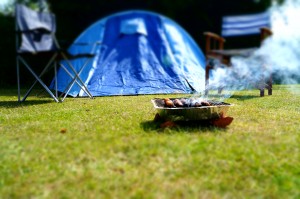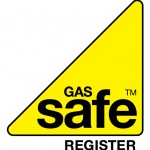A number of high profile deaths from The Silent Killer have ensured that the
public are being exposed to the dangers of carbon monoxide. But do we really know what it is and how to recognise it?
Carbon monoxide hospitalises around 4000 people a year and around 50 people a year die from unintentional carbon monoxide poisoning. It is produced when a number of fuels don’t burn fully and the most common sources are our everyday household appliances including boilers, gas fires and central heating systems. Outside the home, risks include car exhausts, gas canisters used for camping and the trusty barbecue.
Carbon monoxide is also used around the world in a number of different reasons including lasers, medicine and even in meat production where it is used to keep meat looking fresher for longer, giving it a cherry-red pigment. It has also been tested as an alternative to chemotherapy in a number of studies on breast cancer.
With barbecue season in full swing, it’s important to talk about the dangers of carbon monoxide as poisoning can happen to anyone at any time. It’s colourless, tasteless and odourless meaning it’s notoriously difficult to detect and many people confuse their symptoms with flu or food poisoning.
So what precautions should you take?
- Never light a barbecue inside
- Don’t use gas cookers for heating rooms
- Ensure all appliances are serviced regularly and maintained by a Gas Safe registered engineer
- Buy a carbon monoxide detector and place in areas such as outside bedrooms
- Ensure rooms are well ventilated
- A yellow flame on gas appliances may signal the presence of carbon monoxide
Acute exposure to CO may present a number of subtle symptoms. You may feel unwell or just have a general feeling of malaise. Additionally, you may suffer from:
- Headache
- Vomiting
- Nausea
Moderate exposure can present itself in a number of ways including:
- Weakness
- Dizziness
- Concentration problems
- Confusion
- Shortness of breath
- Chest pains
Whereas severe CO exposure can cause:
- Seizures
- Coma
- Death
In some cases, particularly in CO exposure at work, symptoms may only present themselves after a number of days or even weeks so be vigilant and take note as to whether your symptoms alleviate after leaving the premises and worsen upon return.
If you’re going on holiday, take a portable CO alarm. Carry it with you wherever you go.
Going camping this summer? A faulty stove, camping light or gas canister could cause serious damage. Check your equipment before you go and ensure any camp fires are fully extinguished before going to sleep.
Carbon monoxide kills by replacing oxygen in the bloodstream so if you suspect CO poisoning it’s important to open the windows and doors to allow your body to get fresh air. Then, turn off all appliances and leave the premises.
For urgent medical attention, call an ambulance and visit the hospital where if CO poisoning is discovered you will begin pure oxygen treatment. For non-life threatening cases, visit your local doctor who will advise and make relevant recommendations.
Be aware of the signs and symptoms of this silent killer and stay vigilant. Don’t forget to share this article and you may just save a life!

